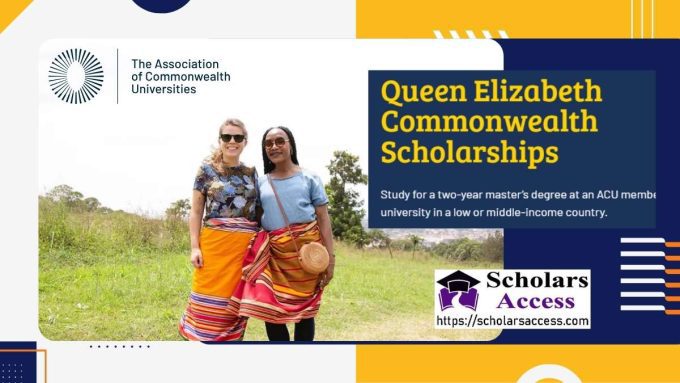The Rhodes Scholarship stands as one of the most prestigious and transformative academic awards globally, offering exceptional students the opportunity to pursue postgraduate studies at the University of Oxford. Established in 1902 through the will of Cecil John Rhodes, this scholarship has, for over a century, nurtured leaders dedicated to public service and societal advancement. This comprehensive exploration delves into the scholarship’s history, selection criteria, application process, and its enduring impact on the global academic and leadership landscape.
The Rhodes Scholarship is more than a prestigious academic award — it is a platform for cultivating change-makers. From its historical foundations to its modern-day adaptations, the scholarship has continuously evolved to empower young leaders with vision, empathy, and the courage to confront global challenges.
By providing not only financial support but also a nurturing intellectual community, the Rhodes Trust ensures that scholars are equipped to lead with wisdom and integrity. Whether it’s addressing educational inequities, contributing to climate resilience, shaping policy, or advancing research, Rhodes Scholars exemplify the power of education in shaping a better world.
Historical Background
Origins and Vision of Cecil Rhodes
Cecil John Rhodes, a British businessman and imperialist, envisioned a scholarship that would unite young intellects from diverse backgrounds to foster mutual understanding and contribute to global peace. In his will, Rhodes articulated his desire to create an international community of scholars who would study at Oxford, imbibe its values, and work towards the betterment of humanity. This vision materialized into the Rhodes Trust, which has been administering the scholarships since their inception in 1903.
Evolution Over the Decades
Initially, the The Rhodes Scholarship were limited to male students from specific countries within the British Empire, Germany, and the United States. However, over the years, the program has undergone significant transformations to become more inclusive. Women became eligible to apply in 1977, marking a pivotal shift towards gender equality. Furthermore, the geographical reach has expanded, allowing students from around the world to compete for this esteemed award.
Selection Criteria of The Rhodes Scholarship
The Rhodes Scholarship seeks individuals who exhibit a unique blend of academic excellence, leadership potential, and commitment to service. The selection criteria, rooted in Rhodes’s original vision, encompass:
- Academic Excellence: Candidates must demonstrate outstanding scholarly achievements, reflecting their ability to thrive in Oxford’s rigorous academic environment.
- Energy to Use One’s Talents to the Full: This criterion assesses the candidate’s pursuit of excellence beyond academics, such as achievements in sports, music, debate, dance, theatre, and artistic pursuits, particularly where teamwork is involved.
- Personal Attributes: Attributes like truth, courage, devotion to duty, sympathy for and protection of the weak, kindliness, unselfishness, and fellowship are highly valued.
- Leadership Potential: The ability to lead and inspire others towards positive change is a critical component of the selection process.
Application Process of The Rhodes Scholarship
Eligibility Requirements
Prospective applicants must meet specific eligibility criteria, which may vary slightly depending on the constituency:
- Educational Qualifications: Completion of an undergraduate degree with an academic background and grade that meets or exceeds the specific entry requirements of the chosen full-time course at the University of Oxford.
- Age Limit: Applicants must be between 18 and 24 years old, with variations depending on the constituency.
- Citizenship and Residency: Candidates must fulfill the citizenship or residency requirements of the Rhodes constituency for which they are applying.
Application Components
The application process is comprehensive, requiring candidates to submit:
- Personal Statement: An essay articulating the candidate’s aspirations, achievements, and reasons for applying.
- Academic Transcripts: Detailed records of academic performance.
- Letters of Recommendation: Typically, six letters attesting to the candidate’s character, academic abilities, and leadership potential.
- Proof of Age and Citizenship: Valid documentation confirming eligibility.
Selection Process
Applications undergo a rigorous review process:
- Preliminary Screening: Assessment of submitted documents to ensure eligibility and competitiveness.
- Interviews: Shortlisted candidates are invited for interviews conducted by selection committees in their respective constituencies. These interviews evaluate the candidate’s intellect, character, and commitment to service.
- Final Selection: Successful candidates are notified and provided with guidance on the subsequent steps.
The Rhodes Scholarship Benefits
Recipients of the Rhodes Scholarship receive comprehensive support:
- University and College Fees: Full coverage of tuition and associated fees.
- Stipend: A monthly allowance to cover living expenses.
- Travel Expenses: Coverage of travel costs to and from Oxford at the beginning and end of the study period.
- Duration: The scholarship is tenable for two years, with the possibility of a third year upon application.
Impact and Legacy
Notable Alumni
The Rhodes Scholarship boasts an illustrious list of alumni who have made significant contributions across various fields. Notable scholars include:
- Bill Clinton: 42nd President of the United States.
- Malala Yousafzai: Nobel Laureate and education activist.
- Susan Rice: Former U.S. National Security Advisor and Ambassador to the United Nations.
Global Influence
Rhodes Scholars have been instrumental in shaping policies, advancing research, and leading organizations worldwide. Their collective impact underscores the scholarship’s role in fostering leaders committed to public service and global betterment.
Challenges and Criticisms
Despite its prestige, the Rhodes Scholarship has faced criticisms:
- Colonial Legacy: Cecil Rhodes’s imperialist activities have led to debates about the scholarship’s origins and the appropriateness of honoring his legacy. Movements like “Rhodes Must Fall” have called for a re-examination of symbols associated with colonialism.
- Diversity and Inclusion: While strides have been made towards inclusivity, ongoing efforts are necessary to ensure equitable representation across all demographics.
Recent Developments
Expansion of Eligibility
In recent years, the Rhodes Trust has expanded eligibility criteria to include students from regions previously unrepresented, reflecting a commitment to global diversity and inclusion.
Adaptations Amidst Global Challenges
The scholarship program has adapted to global challenges, including the COVID-19 pandemic, by incorporating virtual interviews and flexible study arrangements to accommodate scholars’ needs.
Upcoming Deadlines and Timeline for Application
The Rhodes Scholarship application process operates on a strict annual schedule. Although specific dates may vary slightly depending on the country or region (also known as the “constituency”), the general timeline includes the following milestones:
1. Opening of Applications
- Typically Opens: Early June
- Applicants can start preparing and submitting their materials through the official Rhodes Trust portal.
- Constituency-specific application portals are available through the Rhodes House website.
2. Application Deadline
- Generally Falls in: Late July to early October (depending on constituency)
- Missing the deadline leads to automatic disqualification, so applicants should plan accordingly.
3. Preliminary Review and Shortlisting
- Occurs Between: August and October
- Applications are reviewed by national or regional selection committees.
4. Interviews
- Conducted During: October to November
- Shortlisted candidates are invited for one or more interviews.
- In some regions, final selections are made after a single interview; others may involve multiple stages.
5. Announcement of Scholars
- Typically Announced: Late November to December
- Finalists are notified and begin preparations to commence studies at Oxford the following October.
6. Commencement of Oxford Studies
- Studies Begin: October of the following year
The Rhodes Network: A Lifelong Community
Winning a Rhodes Scholarship is not just about studying at Oxford — it’s about becoming part of a vibrant, lifelong network of scholars, thinkers, and leaders. Once awarded, Rhodes Scholars join a distinguished alumni community with access to mentorship, events, and collaborative projects globally.
The Rhodes Scholar Network fosters continuous learning and dialogue through:
- Annual retreats
- Leadership development programs
- Speaker series and panels
- Global alumni reunions
- Professional development workshops
This vibrant ecosystem ensures that Scholars stay connected long after their time at Oxford, continuously sharing ideas and collaborating on impactful projects.
Future Directions of the Rhodes Trust
To ensure the Rhodes Scholarships remain relevant and inclusive in a rapidly evolving world, the Rhodes Trust is committed to:
- Expanding access: Further widening the pool of eligible candidates through new partnerships and the expansion of global scholarships.
- Sustainability and climate leadership: Encouraging Scholars to engage in global challenges such as climate change, health equity, and technology ethics.
- Ethical leadership: Promoting integrity, critical thinking, and a strong moral compass in the next generation of global leaders.
The Trust’s efforts to innovate while preserving the scholarship’s core values position it as a model of inclusive academic excellence.
Tip:
It’s important to frequently check the Rhodes Trust’s official application page for constituency-specific deadlines, as they vary globally.
Conclusion: More Than a Scholarship
The Rhodes Scholarship remains a beacon of academic excellence and leadership development. Its enduring legacy is evident in the profound impact of its alumni and the continued commitment to nurturing individuals dedicated to making a positive difference in the world. As it evolves to meet contemporary challenges, the scholarship upholds its foundational values, inspiring generations to come.
So, if you’re a driven, curious, and compassionate individual seeking not only an academic challenge but also a life-changing experience, the Rhodes Scholarship may very well be your gateway to leaving a lasting impact.
Frequently Asked Questions (FAQs)
1. Can I apply for the Rhodes Scholarship if I’m not from a listed constituency?
Yes, you can. If your country is not part of a designated Rhodes constituency, you may be eligible to apply through the Global Rhodes Scholarship, which was introduced to include talented individuals worldwide. The Global Scholarship operates under the same high standards and offers an equal opportunity to study at Oxford.
2. Do I need to have a perfect GPA or academic record to be selected?
Not necessarily. While academic excellence is crucial, the selection process also emphasizes character, leadership, and commitment to service. Candidates with slightly lower grades can still be selected if they show outstanding achievements and leadership qualities in other areas such as activism, athletics, or entrepreneurship.
3. Can I apply more than once if I am not selected the first time?
Yes, but with restrictions. Applicants can typically apply only once per year, and most constituencies permit only one application ever, unless special circumstances apply (e.g., age exception or educational delay). Be sure to verify the rule in your specific region.
4. Do I need to already have an offer from Oxford University before applying?
No, you do not need to have an offer from Oxford when you apply for the Rhodes Scholarship. However, if selected, Rhodes Scholars must apply to the University of Oxford and be accepted into a course of study. The Rhodes Trust provides guidance and support during the Oxford admissions process.
5. What courses can I pursue as a Rhodes Scholar?
Rhodes Scholars can pursue almost any full-time postgraduate degree at Oxford University, including:
- Taught Master’s programs (MSc, MSt, BCL, etc.)
- Research-based degrees (MLitt, DPhil/PhD)
- Some second undergraduate degrees (e.g., law or medicine, under specific exceptions)
A full list of eligible programs can be found on the University of Oxford’s Graduate Admissions website.














Leave a comment